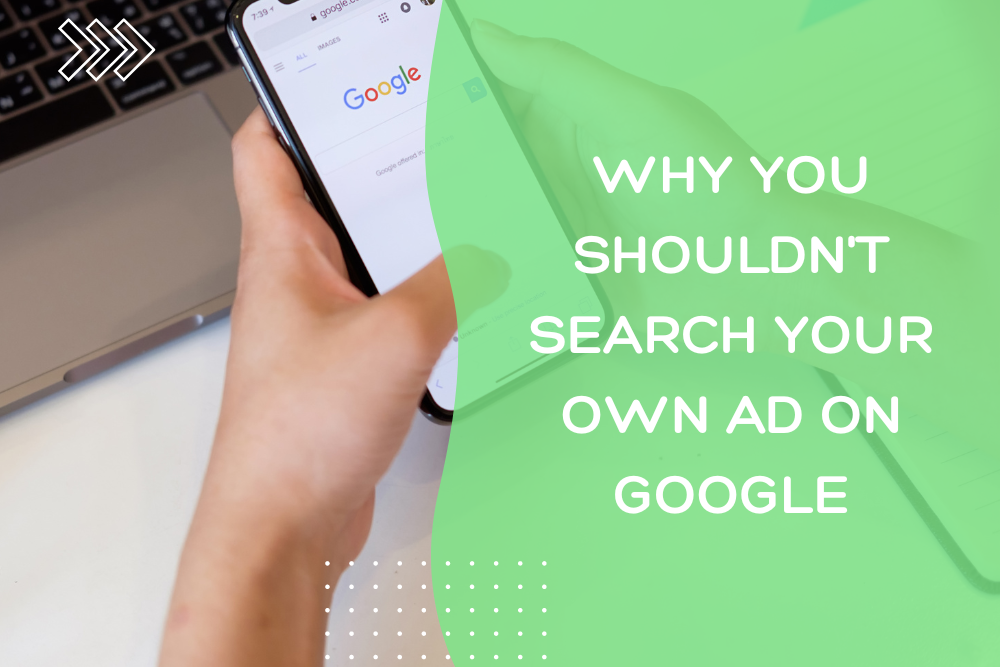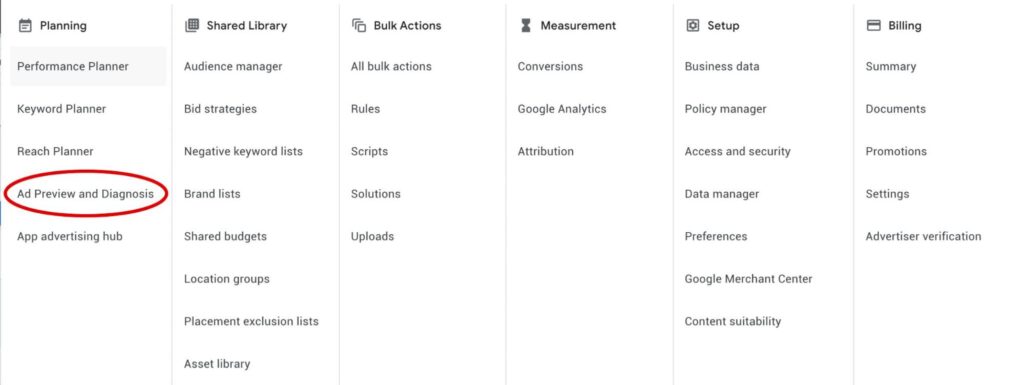© 23e2 Business Services Inc. | Working With 3rd Parties
Why You Shouldn't Search Your Own Ad on Google

In the digital age, the lure of Googling everything extends itself to digital marketers and business owners curious to see their own ads in action. It seems harmless, right? You’ve invested time, creativity, and budget into your Google Ads campaigns, and naturally, you’re eager to see your ads in the wild. However, this seemingly innocent action can have unintended negative consequences for your campaign’s performance and your budget. Let’s dive into why searching for your own ad on Google is a bad idea and what you should do instead.

1. Wasting clicks
Every time you search for your own ad and click on it, you’re costing yourself money. Google Ads operates on a pay-per-click (PPC) model, meaning advertisers pay each time someone clicks on their ad. Frequent searches followed by clicks on your ad can lead to a wasteful expenditure of your budget on non-converting clicks, which could have been better spent reaching genuine potential customers.
2. Hurts your Quality Score
When you frequently search for your ad without clicking on it, Google’s algorithms might interpret this behavior as a signal that the ad is not relevant to the search query. Over time, this can negatively affect the ad’s Quality Score, a crucial metric that influences your ad’s cost and placement. A lower Quality Score can lead to higher costs per click and lower ad positions, affecting your campaign’s overall effectiveness and visibility.
3. It Lowers your CTR
Repeatedly searching for your ad can also impact how often it is shown to real users. Google’s algorithms are designed to prevent ad fatigue by limiting the number of times the same ad is shown to the same user. This is known as frequency capping. If the system notices a high number of impressions but a low click-through rate (CTR) from the same IP address, it might mistakenly apply frequency capping, reducing the chances of your ad being seen by actual interested users.

4. False Sense of Performance
Checking your ad’s visibility in the search results doesn’t provide an accurate picture of its real-time performance. Many factors influence ad placement, including competition, bid strategy, and personalized search settings. Your personal or office IP’s repeated searches might trigger Google’s personalization algorithms, showing you the ad more frequently than it does to a typical user, creating a misleading perception of its visibility.
What to Do Instead?
– Use Ad Preview and Diagnosis Tool
Google provides a powerful tool within Google Ads known as the Ad Preview and Diagnosis tool. This feature allows you to see how your ad appears in different locations, on various devices, and under a range of search queries without impacting your ad performance. It’s an invaluable resource for checking your ad’s visibility without the adverse effects of manual searches.

– Analyze Performance Metrics
Focus on the data. Google Ads provides a wealth of analytics and performance metrics that give real insights into how your ads are performing. Information is power, and Google Ads offers a comprehensive suite of reporting tools that give you deep insights into your campaign’s performance. From click-through rates to conversion rates, and everything in between, there’s a wealth of data at your fingertips. Regularly reviewing these reports can help you understand how your ads are performing, identify trends, and make informed decisions to optimize your campaigns effectively.
– Seek Professional Feedback
If you’re unsure about your ad’s visibility or performance, sometimes a third-party perspective can be invaluable. Consider consulting with a Google Ads expert or a digital marketing professional. These experts can provide insights and recommendations to enhance your campaign’s effectiveness. In addition, engaging in forums and communities of Google Ads users can be a great way to get advice and share experiences.
Curiosity about how your Google Ad appears and performs is natural, but succumbing to the temptation of searching for your own ad can do more harm than good. By using the tools and strategies that Google and other platforms provide, you can achieve a clear understanding of your ads’ performance, make informed decisions, and drive better results without jeopardizing your campaign’s integrity or budget.

